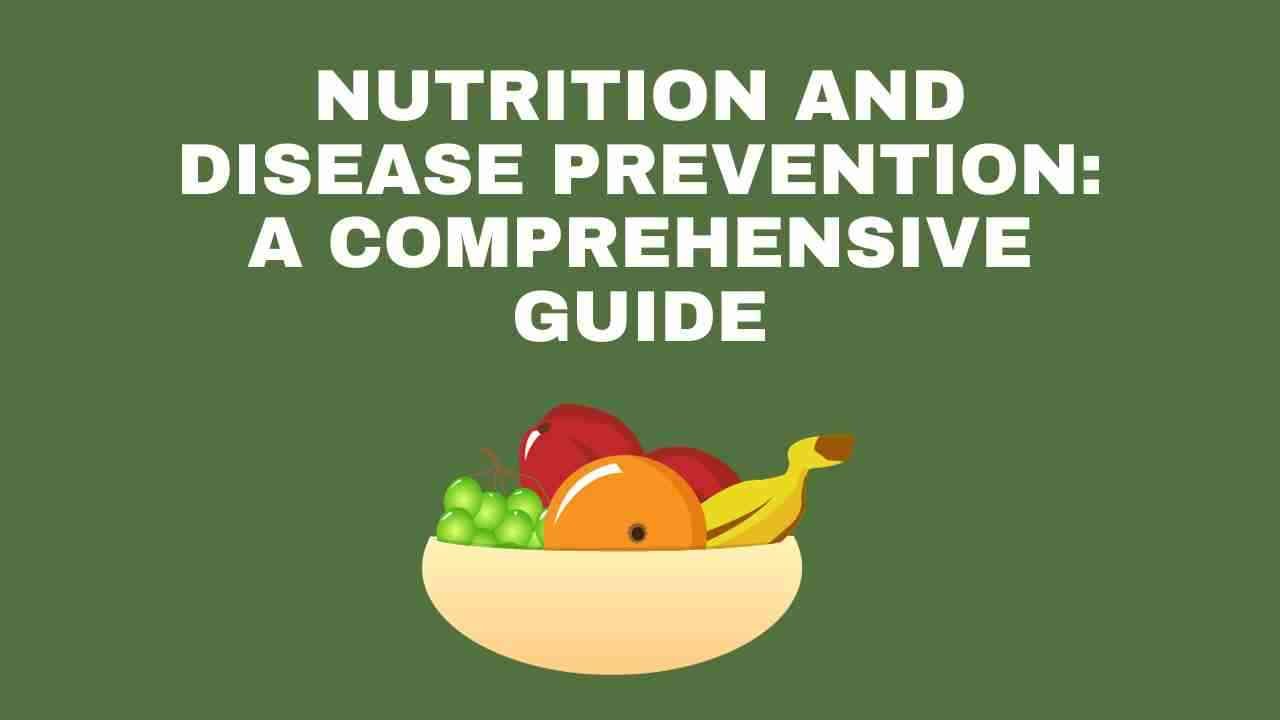In today’s fast-paced world, maintaining good health has never been more critical. One of the key factors in achieving and preserving optimal health is nutrition. Your diet plays a pivotal role in bolstering your immune system and warding off chronic diseases. In this comprehensive guide, we’ll delve into the intricate relationship between nutrition and disease prevention, exploring how the food you consume can be a powerful ally in your quest for a healthier life.
Understanding the Basics of Nutrition
Before we dive into the specifics of disease prevention through nutrition, let’s establish a solid foundation by understanding the basics of nutrition. This section will cover macronutrients and micronutrients, their importance, and recommended daily intake.
Macronutrients: Fuel for Your Body
Macronutrients, including carbohydrates, proteins, and fats, are the primary sources of energy for your body. We’ll discuss their roles in energy production and how to make informed choices when it comes to macronutrient consumption.
Micronutrients: The Essential Helpers
Micronutrients, such as vitamins and minerals, are vital for various bodily functions. We’ll explore the importance of micronutrients, their sources, and how they contribute to a strong immune system.
The Immune System and Nutrition
Your immune system is your body’s defense mechanism against infections and diseases. Proper nutrition can significantly impact its effectiveness. This section will delve into the connection between nutrition and a robust immune system.
Vitamins and Immunity
Certain vitamins, such as vitamin C and vitamin D, are renowned for their immune-boosting properties. Discover which foods are rich in these vitamins and how they can enhance your immune response.
Minerals and Immunity
Minerals like zinc and selenium play a crucial role in immune function. We’ll discuss their functions, dietary sources, and how they contribute to disease prevention.
Nutrition and Chronic Disease Prevention
Chronic diseases like heart disease, diabetes, and cancer are major health concerns worldwide. The right dietary choices can significantly reduce your risk of developing these conditions.
Heart-Healthy Eating
Explore a heart-healthy diet that can lower your risk of heart disease. Learn about foods that promote cardiovascular health and the importance of managing cholesterol levels.
Diabetes Prevention through Diet
Discover how dietary modifications can help prevent and manage diabetes. We’ll discuss the glycemic index, portion control, and the role of carbohydrates in diabetes prevention.
Cancer-Fighting Foods
Certain foods contain antioxidants and compounds that may reduce the risk of cancer. We’ll highlight these foods and their potential cancer-fighting properties.
Also check: Preventing Infections Through Cleanliness
Putting Knowledge into Practice
Now that you have a solid understanding of the relationship between nutrition and disease prevention, it’s time to put this knowledge into action.
Building a Balanced Diet
We’ll provide practical tips on creating a well-balanced diet that incorporates all the essential nutrients for a strong immune system and overall health.
Meal Planning and Preparation
Learn how to plan and prepare nutritious meals efficiently, even with a busy lifestyle. We’ll share time-saving strategies and meal-prepping ideas.
Conclusion
In conclusion, nutrition plays a pivotal role in maintaining a strong immune system and preventing chronic diseases. By making informed dietary choices and embracing a balanced and healthy eating pattern, you can empower yourself to lead a healthier, disease-free life.
FAQs
Nutrition can significantly reduce the risk of many diseases, but it may not prevent all of them. Other factors like genetics and lifestyle choices also play a role.
Foods rich in vitamin C (citrus fruits, bell peppers), vitamin D (fatty fish, fortified dairy), and zinc (lean meats, nuts) can boost your immune system.
Start by including a variety of fruits, vegetables, whole grains, lean proteins, and healthy fats in your diet. Limit processed foods and sugar.
Regular exercise complements a healthy diet in disease prevention by promoting overall wellness, improving cardiovascular health, and supporting weight management.
Yes, nutrition can impact mental health. A balanced diet rich in omega-3 fatty acids, antioxidants, and B vitamins can support brain function and mood regulation. However, mental health is complex, and professional guidance may be needed for specific conditions.









